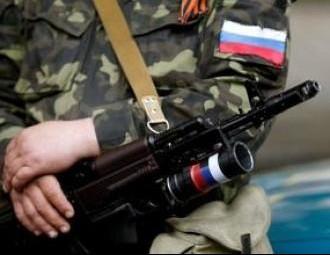Andrei Yahorau: Russia is stuck in the ambigenous war with Ukraine

Supporting Ukraine with gestures and rhetoric, Belarus is compelled to support Russia with actions.
Ukraine has chosen a legal president to supersede “Kiev’s junta”, the name Kremlin gave to the authorities who undertook the power after Yanukovich was overthrown. It should seem that now Kremlin is to restrain its imperial ambitions – destabilization of situation didn’t shake Ukraine’s unity. Russia has grown lenient, and Russia’s Foreign Office has even stated that they “respect the choice of the Ukrainian people”.
But something different happens in reality: Moscow is “delivering” more and more gunmen and armament to the restless Lugansk and Donetsk regions to further destabilize the situation in Ukraine.
What is next? How long can the confrontation last with the newly elected president of Ukraine? When will the unannounced war end?
These questions “EuroBelarus” Information Service discussed with Andrei Yahorau, the head of the Centre for European Transformation.
- Ukraine has elected its president. Will Moscow recognize the election as legitimate?
- Even if Moscow doesn’t officially recognize the election in Ukraine, de facto it has to deal with Poroshenko, who was elected legitimately and has enormous support among Ukrainians.
This way or another, Kiev and Moscow will have to talk, and it is in this direction that the situation is developing. Kremlin will have to decide whether to continue the intervention in Ukraine or retrace its steps.
- Even Kremlin treats the choice of the Ukrainian people with “respect”. The trouble is that in politics words often differ from actions. It is unlikely that Putin lets Ukraine go easily; so what policy towards Ukraine will Kremlin choose?
- Now destabilization of situation in Lugansk and Donetsk regions is going on, and a lot depends on the decisiveness of the new Ukrainian authorities and Ukrainian members of the top brass rather than on Russia’s actions.
In addition to the direct intervention Russia will be manipulating Ukraine with the help of the economic levers. But during this time Ukraine managed to diversify the delivery of natural gas and purchases it in Europe. I don’t think that Kremlin can force Ukraine to give in because of the economic reasons.
- For how long can the tug of war last? Ukraine finally got a legitimate president, while Russia continues delivering gunmen and weaponry to Ukraine.
- Russia is stuck in its own strategy of actions in Ukraine; it is stuck in the ambigenous war. How long will this process last depends not only and not so much on Russia, but on the actions of the new president and the new Ukrainian government.
- After the bloodshed there is no saying that Ukraine-Russia “brotherly” relations will be restored. But is the normalization of bilateral relations possible in the near future?
- Anything is possible. Ukraine is closely tied with Russia, Russian economy; and that is why two sides have to maintain their relations at a certain level. Ukraine is now facing the problem of Russia-Ukraine border demarcation; it has to get out of dependency from natural gas, redirect its strategic industries which are dependent on Russian military-industrial complex.
But still, the restoration of friendly relations at the former level won’t happen soon.
I think that Ukraine-Russia relations will undergo the same processes that Russia-Georgia relations went through after the war in 2008. After long years of Cold War bilateral relations of these two countries gradually went on the level of working contacts.
- Minsk as Russia, also “respects the choice of the Ukrainian people”. Does Belarus lack independence when it comes to Ukraine?
- Belarus is independent in the issue of Ukraine, though considerably restricted. Minsk is putting a brave face on a sorry business; supporting Ukraine with gestures and rhetoric, Belarus is compelled to support Russia with actions. Belarus occupies this dubious position since the beginning of the Russia-Ukraine war.
-
03.01
-
07.10
-
22.09
-
17.08
-
12.08
-
30.09










































